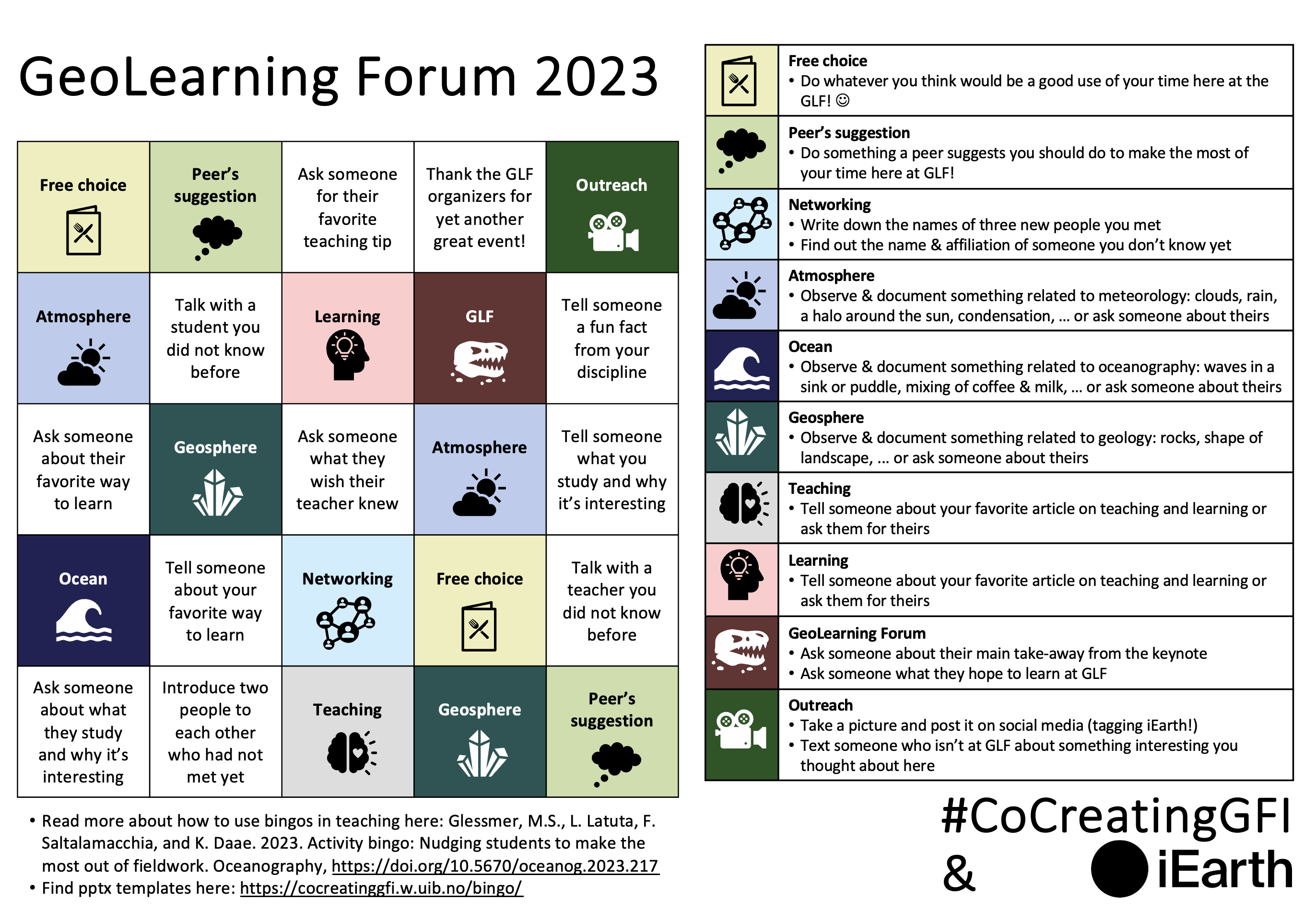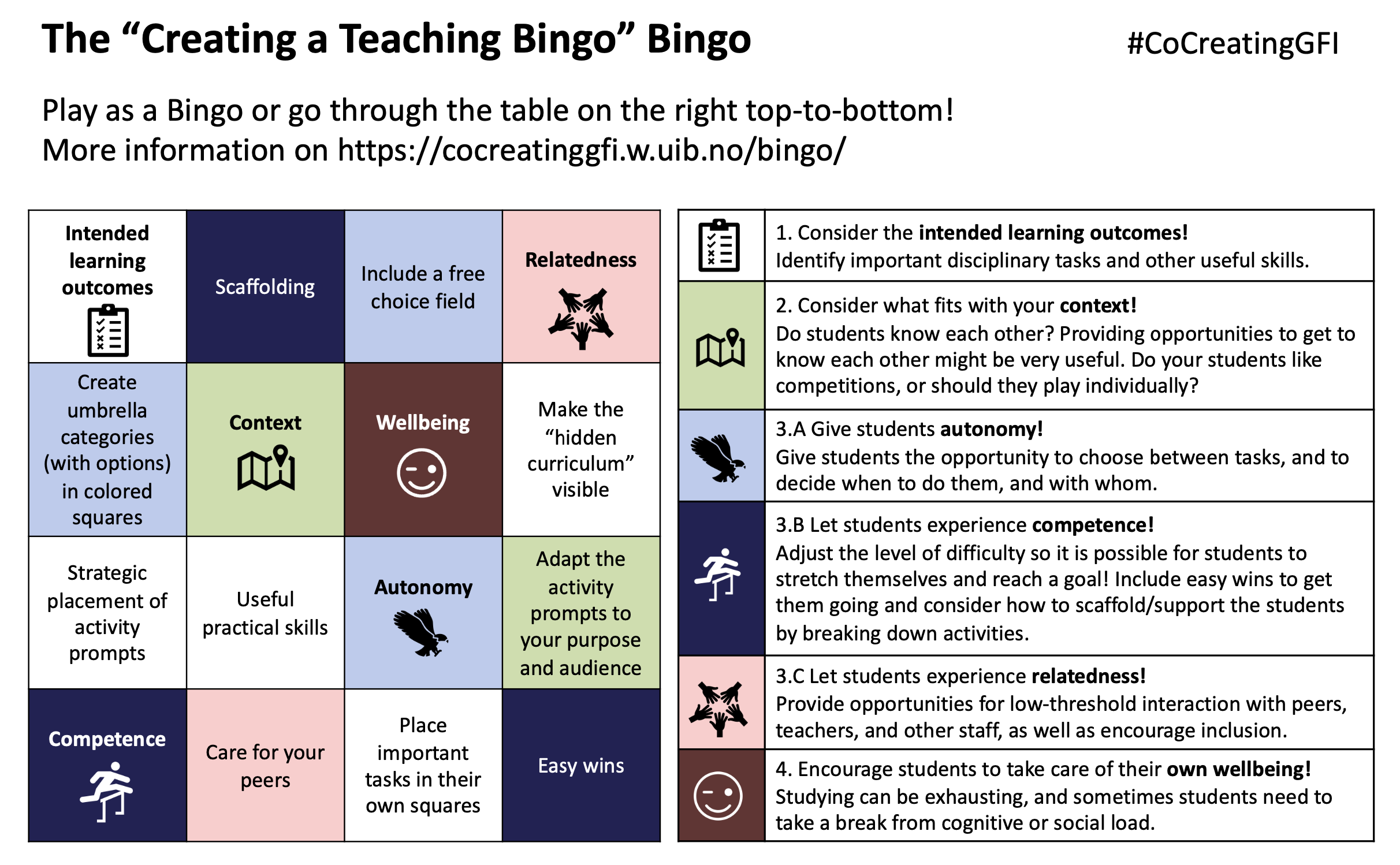
iEarth GeoLearning Forum 2023 Bingo
Unfortunately, I can’t join the iEarth GeoLearning Forum in person today, but at least I can be there in spirit (and contribute with a Bingo to be played during an active lunch break). The idea is to get students and teachers and staff talking to each other, about their experiences learning and teaching, and also […]

